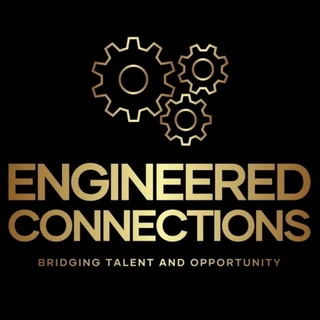Civil engineering is one of the UK’s most rewarding and impactful career paths, offering the chance to shape the built environment—from roads and railways to water systems and energy infrastructure. With landmark projects like HS2, the Thames Tideway Tunnel, and Net Zero transport initiatives gaining momentum, now is a prime time to enter this fast-evolving industry.
At Engineered Connections, we specialise in helping civil engineers—whether newly qualified or highly experienced—secure roles that align with their ambitions and technical expertise. Here’s what you need to know to succeed in today’s civil engineering job market.
Why Civil Engineering is Booming in the UK
The government’s continued investment in large-scale infrastructure projects has created sustained demand for skilled civil engineers. Key developments include:
- HS2 – Transforming national rail infrastructure and boosting regional connectivity.
- Thames Tideway Tunnel – Enhancing London’s water and sewage systems.
- Sustainable transport and smart city schemes – From cycle superhighways to EV charging networks.
This growth spans multiple disciplines—highways, rail, water, energy, and environmental engineering—making civil engineering one of the most resilient career choices in construction.
Core Skills Employers Are Looking For
To stand out in the civil engineering sector, you’ll need to demonstrate a balance of technical knowledge and commercial awareness. Employers typically look for:
🧠 Technical Expertise
- Understanding of structural design, geotechnics, fluid mechanics, and environmental engineering.
- Proficiency in AutoCAD, Civil 3D, Revit, and modelling software.
📊 Project Management
- Experience managing budgets, timelines, and project risks.
- Familiarity with NEC or JCT contracts and certifications like PRINCE2 is a strong advantage.
💡 Problem Solving
- The ability to develop practical, cost-effective solutions to complex engineering challenges.
🗣 Communication & Collaboration
- Civil engineers work closely with architects, surveyors, planners, and clients—clear, confident communication is essential.
Qualifications That Give You an Edge
While there are multiple entry points into civil engineering, these credentials help you stand out:
- BEng / MEng in Civil Engineering or a closely related discipline.
- Chartered Engineer (CEng) or Incorporated Engineer (IEng) status through the ICE or similar institutions.
- NEBOSH / IOSH or SMSTS health & safety certification, showing a commitment to site safety and compliance.
How to Position Yourself for Success
1. Tailor Your CV
Highlight your most relevant skills and experience. Use project examples to demonstrate real-world outcomes and responsibilities.
2. Build Your Network
Attend ICE events, technical webinars, and industry expos. LinkedIn is a powerful tool—follow companies and contribute to discussions to stay visible.
3. Embrace Lifelong Learning
Stay current with advances in digital engineering, carbon-conscious design, and modern methods of construction. Online CPD and short courses can boost both your CV and confidence.
4. Work with a Specialist Recruiter
At Engineered Connections, we focus exclusively on the engineering sector. We understand the technical language, the hiring landscape, and how to position you for the roles that match your expertise and career goals.
Future Trends & Opportunities in Civil Engineering
The future of civil engineering is being shaped by innovation and sustainability. Some areas to watch include:
- Smart infrastructure & digital twins
- Flood resilience & coastal protection
- Green transport & low-carbon materials
- Energy transition projects (hydrogen, solar, wind)
These trends offer exciting new avenues for both new graduates and experienced professionals looking to futureproof their careers.
Ready to move forward in civil engineering?
Browse our latest opportunities or contact the team at Engineered Connections. Whether you’re looking to specialise or step up into a leadership role, we’ll help you build a career that lasts.
